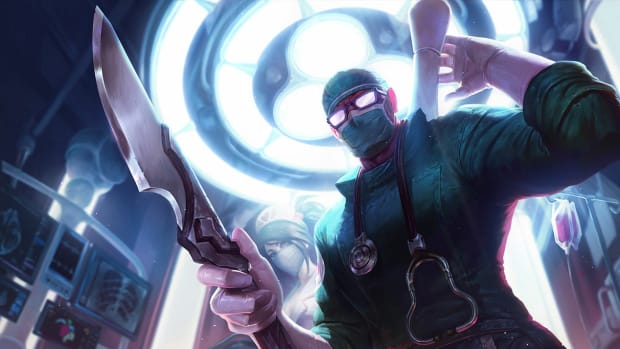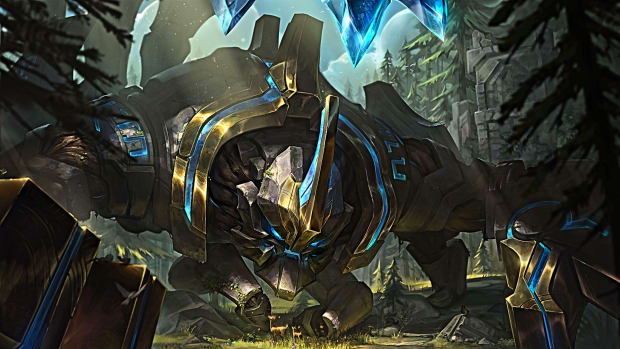How Overwatch Players Use Their Skills to Secure an Education
Video games have become important to modern culture. In the modern technological age, it would be nearly impossible to find someone who has not been influenced by a game in some way. Video games are among the most popular hobbies in the United States and they are helping carve a path for a certain kind of player — the kind who wants to become the best at what they do. Esports is an ever-changing and ever-growing area for those competitive-minded individuals. It’s a type of play that is beginning to stand alongside traditional sports in terms of popularity and as a legitimate career.
From the first Quake LAN tournament to the first online match of Halo and into the modern era of gaming, esports continues to rise as an exciting and unique form of competition. But a very important game would be released in early 2016 by Blizzard who, at the time, was unmatched in the gaming industry. It was a game with a fusion of MOBA and some class-based FPS elements. Its colorful graphics with expressive and unique characters from around the world made this game a cultural phenomenon from casual to competitive gamers alike.
Overwatch Begins Its Competitive Campaign
Blizzard wasted no time capitalizing on this popularity to invest a massive amount of money into their esports ecosystem, creating three tiers of competition. Their first tier was the highest form of competition; the Overwatch League was where the best of the best would play to win championships and build fanbases with players from around the world. For their second tier they would create Overwatch Contenders, intended to be a pipeline for unproved talent to join the league. Contenders players would arguably have a higher necessity to win tournaments due to the fact that many of them earn their money through tournament winnings or streaming. While an OWL player would be salaried with a contract and given possible tournament winnings, there was no guarantee an OWC player would walk away with any money after a season.
Finally we have the third official tier of competition, Open Division and a type of play that has become nearly as competitive as Contenders. Blizzard would also invest in the silently growing collegiate scene, a place where people could compete while earning an education.
The Role of Colleges in Esports
However, there’s a bigger reason why someone would attempt to juggle both a time-consuming hobby like gaming with a college workload. Universities have a very good reason to support their players because it can not only earn them more money to invest into the campus, but draw attention from fans and competitors alike. This can lead to a highly beneficial and symbiotic relationship between the college and its players. In an ideal environment, the college supports the players so they can succeed, the students and/or college earn back money through tournament winnings and build interest for more students to enroll. This means more and better talent will have a higher chance of committing to their system, and they continue to earn money by having the best talent in their competitive tier.
For example, take a college like Harrisburg University, or more notably Northwood University. On the surface, this small university in central Michigan is a decent business college that recently joined a good Division II football league, but where it really shines is in its esports system. Incredible talent is brought to this college, and taking a look at their results shows how successful any system can be by promising its players scholarships to compete for them. If a game has enough popularity to run collegiate tournaments, you can bet Northwood has a roster with a scholarship to dominate the scene.
However, there are different amounts of investment for different types of schools. While most top colleges will not see much reason to invest in this path, there are still ones with very high enrollment that will build a system for their players. Colleges such as Rutgers, Illinois State, Ohio State and UC Irvine have successful programs and remain very popular colleges.
Smaller colleges have a legitimate reason to invest in their esport teams when they simply do not have enough money to build high-tech training facilities and top-tier coaching staff to compete with international champions. With this avenue showing its legitimacy for colleges like Northwood, this could hopefully become more widespread and open more paths for future student-athletes to secure education while playing and growing with a team.
The Beauty of Competition
But money isn’t always the biggest reason why a player would want to participate in collegiate Overwatch. There are still a few colleges in the top 32 that do not financially support their players. Having a team environment for people like foreign exchange students, or students that travel far from the comfort of their hometown will benefit greatly from having this club to fall back on. Giving an opportunity for students who are balancing the stress of a new school to connect with similar people will significantly improve their chances at academic success. Even without monetary incentives like scholarships, there are still critical reasons for every college to pay even a little attention to their esports scene.
Despite most gaming being done online, the most notable incentive for student-athletes applies to esports as well, the opportunity to travel and compete in person. LAN tournaments are still very much alive for the college scene but do tend to be rarer since Blizzard does not supply an arena to play in, unlike Riot’s College VALORANT Championships. While the amount of travel is much less than a student-athlete in a traditional sport, college Overwatch players still travel a decent amount if their team is good enough to be invited. This can be a good thing for students, but it can be bad for them if the college does not sufficiently support them.
Some top teams will have travel paid for by the university on the assumption that they will be bringing money back from the travel, maybe they will even provide transport to the event. However other teams may lie about providing travel funding or just ignore it entirely, pressuring players to drive and pay for overnight housing out of their own pockets. This is unfortunate and not uncommon for some colleges that don’t pay as much attention as they should towards their student-athletes.
Despite issues in the scene due to Blizzard’s hands-off approach in this area, the experience of this scene is doing much more good than bad. Gamers are not always the most social people, but this scene forces them to get out and connect with real people. The combination of responsibilities for college courses and responsibilities with their team will greatly benefit their emotional and social growth, doubly so for players with scholarships as their misconduct may result in the termination of their scholarship and/or spot on their team.
Video games are important, and those who stick with their hobby may be rewarded when it can become a career that pays for their education, and a place to find people just as passionate as them.
Links:
Collegiate Overwatch Overview with PSU Paz
Yiska Interview with MU danteh
Written by Andy Haggard
This article was created as part of an internship collaboration with NACE





